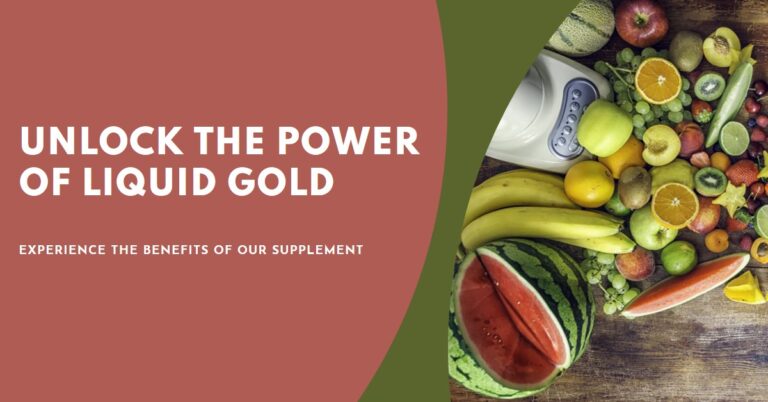Vitamins You Need in Your 20s
Are you ready to unlock the secret to a vibrant and healthy life in your 20s? Look no further, because we’ve got the key – vitamins! These tiny powerhouses are like the superheroes of your body, providing the essential nutrients you need to thrive.
From calcium, the foundation for strong bones, to B-complex vitamins that fuel your energy and metabolism, we’ll delve into the world of vitamins you need in your 20s.
Plus, we’ll explore the importance of vitamin D for bone health and immune function, magnesium for nerve function and heart health, and iron for maintaining energy levels.
So, let’s embark on this journey of discovery and empower your 20s with the vitamins your body craves!
Key Takeaways
- Calcium is essential for increasing bone density in females in their 20s and reducing the risk of osteoporosis later in life. Aim for 1000 mg of calcium per day and consider supplementation if diet alone is insufficient.
- B-complex vitamins play a role in energy production, metabolism, maintaining healthy skin, hair, and nails, as well as mood regulation and cognitive function.
- Vitamin D is necessary for calcium and phosphorus absorption, bone growth, immune system function, and protection against chronic diseases. Ensure adequate intake through sun exposure and diet, and consider supplementation if needed.
- Magnesium is important for energy production, nerve function, bone health, heart rhythm, blood pressure, and blood sugar regulation. Meet the recommended daily intake of 310 mg through magnesium-rich foods or consider supplementation if necessary.
Table of Contents
Calcium for Strong Bones
Increase your bone density and reduce the risk of osteoporosis by ensuring an adequate intake of calcium in your 20s. Calcium is essential for strong bones and plays a crucial role in muscle function, nerve transmission, and blood clotting.
Aim for 1000 mg of calcium per day through a combination of dietary sources and supplements if needed. Vitamin D is also important for calcium absorption, so make sure to get enough sunlight or consider taking a vitamin D supplement.
Along with calcium and vitamin D, b-complex vitamins are essential for energy production and metabolism. They help convert carbohydrates, proteins, and fats into energy, and also support healthy skin, hair, and nails.
B-Complex Vitamins for Energy and Metabolism
Boost your energy levels and support a healthy metabolism in your 20s with B-complex vitamins. B vitamins, such as thiamin, riboflavin, niacin, and pyridoxine, play a crucial role in energy production and the metabolism of carbohydrates, proteins, and fats. They’re essential for maintaining healthy skin, hair, and nails. Inadequate intake of folate and vitamin B12 can increase the risk of anemia and birth defects.
B-complex vitamins also play a role in mood regulation and cognitive function. Including foods rich in B vitamins, such as lean meats, poultry, fish, eggs, and leafy green vegetables, in your diet can help ensure you’re getting enough of these essential nutrients for energy and a healthy metabolism.
Consider adding a B-complex vitamin supplement if needed.
Vitamin D for Bone Health and Immune Function
To support your bone health and bolster your immune function in your 20s, make sure you’re getting an adequate supply of Vitamin D. Vitamin D is necessary for calcium and phosphorus absorption, which are essential for strong bones. It also plays a crucial role in immune system function and protection against chronic diseases. To help you understand the importance of Vitamin D, here is a table showcasing its benefits:
| Vitamin D Benefits |
|---|
| Promotes bone health |
| Supports immune function |
| Protects against chronic diseases |
To ensure you’re getting enough Vitamin D, consider incorporating foods like salmon, eggs, and fortified cereals into your diet. Additionally, spending time outdoors and soaking up some sunlight can help your body produce Vitamin D. If you’re concerned about your Vitamin D levels, consult with a healthcare professional who can recommend appropriate supplementation. Remember, taking care of your bone health and immune function in your 20s sets a strong foundation for your overall well-being.
Magnesium for Nerve Function and Heart Health
To support your nerve function and maintain a healthy heart in your 20s, incorporating magnesium-rich foods into your diet is crucial. Magnesium is an essential mineral that plays a vital role in over 300 biochemical reactions in your body. It’s involved in energy production, nerve function, and bone health.
When it comes to your heart, magnesium helps regulate heart rhythm, blood pressure, and blood sugar levels. In your 20s, it’s important to prioritize your heart health and ensure proper nerve function by consuming foods rich in magnesium such as leafy green vegetables, nuts, seeds, and whole grains.
By incorporating these magnesium-rich foods into your diet, you can support your nerve function and maintain a healthy heart.
Speaking of maintaining your energy levels, let’s now discuss the importance of iron for red blood cell production and energy levels.
Iron for Red Blood Cell Production and Energy Levels
Ensure optimal red blood cell production and maintain high energy levels in your 20s by incorporating iron-rich foods into your diet. Iron is essential for red blood cell production, as it helps in the formation of hemoglobin, the protein responsible for carrying oxygen throughout your body. Without enough iron, you may experience fatigue, weakness, and shortness of breath.
To boost your iron intake, include foods such as shellfish, lean meats, spinach, lentils, and tofu in your meals. Additionally, pairing iron-rich foods with vitamin C-rich foods can enhance iron absorption.
If your diet is inadequate or if you have heavy menstrual bleeding, consider iron supplementation to improve your energy levels and overall health during this crucial period of your life.
Frequently Asked Questions
Can Taking Calcium Supplements Help With Muscle Function and Blood Clotting?
Taking calcium supplements can help improve muscle function and blood clotting. Adequate intake of calcium is essential for these processes. Consider supplementation if your diet alone is insufficient in meeting your calcium needs.
Are There Any Risks Associated With Taking B-Complex Vitamins?
Taking B-complex vitamins is generally safe, but there are a few risks to consider. High doses can cause side effects like nausea or digestive issues. It’s best to stick to recommended doses and consult a healthcare professional if you have any concerns.
How Can I Determine if I Have a Vitamin D Deficiency?
To determine if you have a vitamin D deficiency, you can get a blood test done. This will help assess your vitamin D levels and determine if supplementation is needed.
Is It Possible to Consume Too Much Magnesium Through Diet Alone?
Yes, it is possible to consume too much magnesium through diet alone. However, it is rare and usually only occurs from excessive consumption of magnesium-rich foods or supplements.
What Are Some Natural Sources of Iron That Can Help Prevent Deficiency?
To prevent iron deficiency, incorporate natural sources of iron into your diet, such as shellfish, steak, spinach, lentils, and tofu. These foods can help boost your iron levels and maintain overall health.
Conclusion
In conclusion, ensuring you get the essential vitamins in your 20s is crucial for maintaining overall health and well-being.
Calcium and vitamin D are vital for strong bones, while B-complex vitamins support energy production and metabolism.
Vitamin D is also important for bone health and immune function.
Magnesium is necessary for nerve function and heart health, iron helps prevent anemia and maintain energy levels, and protein supports immune function and hormone production.
Don’t forget about the benefits of ashwagandha for reducing stress.
Take care of your health now for a healthy future.








